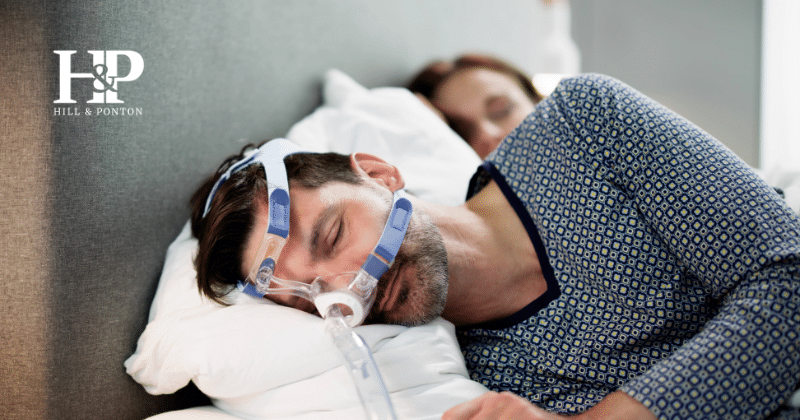Sleep apnea, particularly Obstructive Sleep Apnea (OSA), is a significant concern for many veterans, with over a half a million veterans service-connected for the condition.
It’s a condition where breathing repeatedly stops and starts during sleep, leading to various health issues.
For those who’ve served in the military, the rigors and stresses of service can often exacerbate or contribute to this condition.
Understanding OSA and its relationship with military service is crucial for veterans seeking VA disability benefits.
How do I Connect Sleep Apnea to my Military Service?
If your symptoms manifested in service, providing a buddy statement or showing you had treatment for a sleep disorder during service can prove this.
When your sleep apnea is secondary to another service-connected condition, however, you would likely need to provide a medical nexus to link between the two conditions.
How Does the VA rate Sleep Apnea?
An individual with sleep apnea may be eligible for VA benefits.
Under the VA Ratings Schedule, a veteran with sleep apnea may be entitled to 0%, 30%, 50% or 100% benefits for sleep apnea, as follows:
- 0% Rating: Diagnosis without significant symptoms or required treatment.
- 30% Rating: Daytime sleepiness impacting daily activities.
- 50% Rating: Prescription of a CPAP or other breathing assistance is required.
- 100% Rating: Severe cases with complications like heart issues.
The most common ratings for sleep apnea in veterans is 30% or 50% if a CPAP is required.
Therefore, it’s important to consider connecting this very common disorder to other related conditions.
Get a Better VA Rating for Sleep Apnea by Connecting Secondary Conditions
When it comes to securing the maximum VA rating for sleep apnea, understanding the role of secondary service-connected conditions is crucial.
Many veterans experience other health issues that can either contribute to or worsen their sleep apnea.
Recognizing and proving these connections can significantly impact your VA rating.
Common Conditions Linked to OSA
- How do I claim sleep apnea secondary to PTSD?
- How does Hypertension (high BP) connect to sleep apnea?
- Depression and Anxiety Disorders
- Chronic Pain
- Diabetes Mellitus
- Asthma and other respiratory conditions
- Traumatic Brain Injury (TBI)
- Gastroesophageal Reflux Disease (GERD)
- Obesity
- Neck or Upper Airway Injuries
- Sinusitis or Rhinitis
- Exposure to Toxic Substances or Environmental Hazards
- Chronic Fatigue Syndrome
- Migraines and Headaches
- How do I claim my heart condition secondary to sleep apnea?
Maximizing your VA rating involved a personalized and strategic approach to connecting secondary conditions to your primary diagnosis of OSA based on your personal medical history.
Want to watch a great video about the connection between hypertension and OSA explained by our team? Watch below.
Here’s how you can bolster your claim:
- Gather Comprehensive Medical Evidence: This includes sleep studies, doctor’s notes, and records of treatments for OSA and any linked conditions.
- Document Your Symptoms: Keep a detailed record of how your OSA and secondary conditions affect your daily life, focusing on their interconnectedness.
- Establish the Connection Between Your Service and OSA: Provide treatment records of any sleep problems, buddy statements that corroborate snoring or breathing events during sleep in service, and any other evidence that can show symptoms manifested or worsened during active duty service.
Want expert advice on everything you need to know about evidence for a VA claim? Read our guide below.
Read our guide on VA claims evidence by clicking here!
Content Review
Cassandra Crosby, an Accredited Agent and claims advocate for Matthew Hill & Shelly Mark’s teams, reviewed the information provided in this post.







